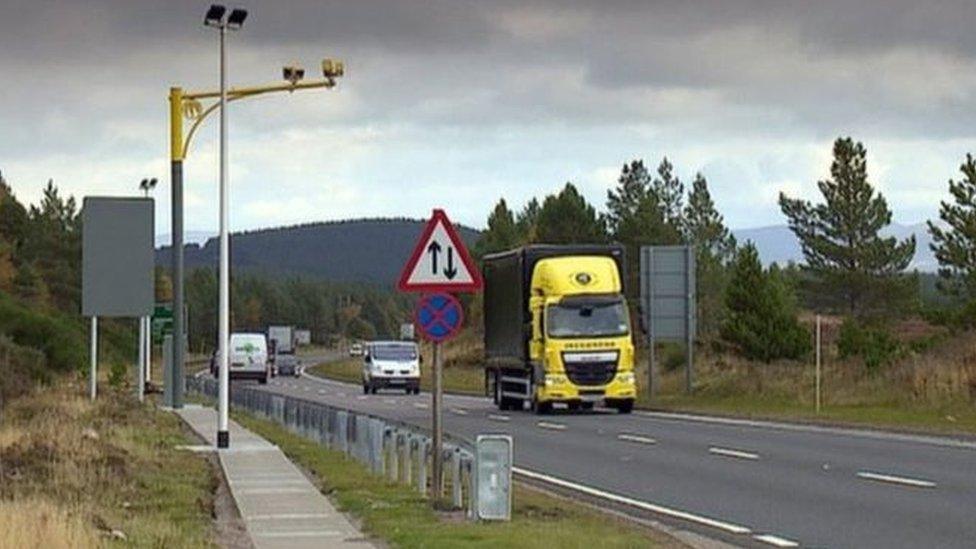A9 casualties fall after introduction of average speed cameras
- Published

An average of 142,000 vehicles travel on the A9 every day
The number of casualties on the A9 has fallen by 45% since the introduction of average speed cameras, according to a new report.
The A9 Safety Group report, external said fewer drivers exceeded the speed limit in the 21 months since the cameras were introduced between Dunblane and Inverness.
Fatalities on the road were down by almost 43% over the same period.
An average of 142,000 vehicles travel on the A9 every day.
A higher speed limit of 50mph for HGVs was introduced at the same time as the average speed cameras in October 2014.
The A9 Safety Group, whose partners include Police Scotland, Highland Council and Road Safety Scotland, said serious injury casualties between Dunblane and Inverness were also down by almost 63%.
'Sustained improvement'
SNP MSP for the Highlands and Islands Maree Todd said: "The A9's improving safety record is really reassuring news for the thousands of drivers that use Scotland's longest trunk road every day as well as those travelling over the busy Christmas holidays.
"There has been a sustained improvement in driver behaviour and a corresponding fall in collisions and casualties."
Construction work on a 10-year £3bn project to upgrade the road to a dual carriageway between Inverness and Perth began in September last year.
Ms Todd said: "Once completed, the dual carriageway will help grow the economy of the Highlands and Islands through improvements, road safety and journey times, as well as better links for public transport and the various tourist and recreational attractions along the route."
World Wildlife Fund Scotland director Lang Banks said: "Once again we continue to see the very clear safety benefits that average speed cameras have had by helping to enforce speed limits on the A9.
"However, alongside other tools, average speed cameras are also a cost effective way to reduce climate emissions as well as fuel costs for motorists.
"To reduce health-threatening levels of air pollution and our meet our climate targets, the use of average speed cameras and other approaches to help reduce excessive speeds should be seriously considered on all major roads across Scotland."